Table of Contents[Hide][Show]
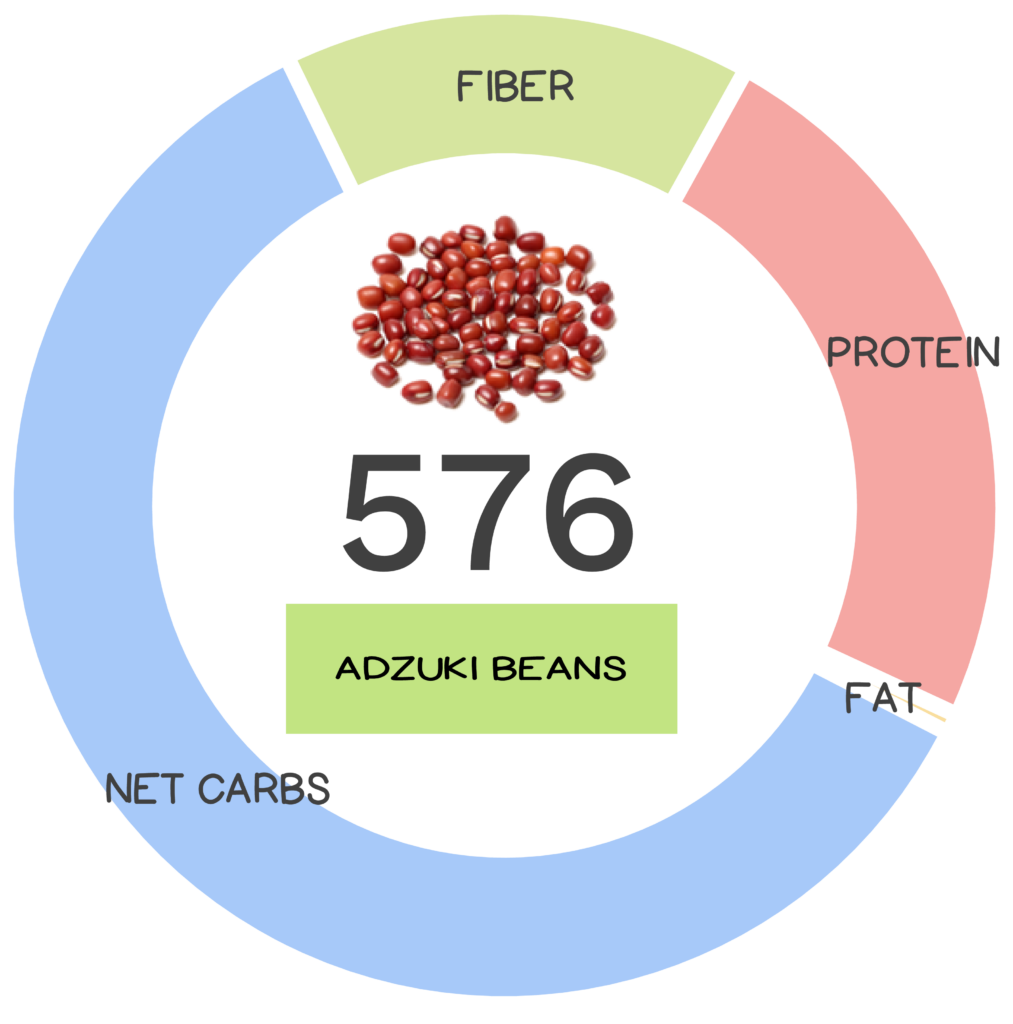
The adzuki bean has a few other pseudonym’s including aduki bean, azuki bean, red mung bean, or red bean. Like other beans it is an annual plant and is widely grown in East Asia. Most adzuki beans are uniformly dark red in color, but can be white, black, gray and some other varieties can have spots or markings. The adzuki bean was one of the first crops in Japan to be subjected to scientific breeding to improve the plant yield, color and growing/maturing time.
Adzuki beans are most commonly uniformly red in color and are the second most important crop in Japan, next to soy beans!
The adzuki bean plants are annual, not frost-hardy, and they grow best in moderate temperatures, as the heat can promote higher vegetative growth and less bean production. The adzuki bean plant is generally a bushy plant that also has some less common climbing or prostrate varieties. This legume is a very popular and beneficial variety that deserves your attention!
Legumes might not be the most fancy, flashy, or exciting foods out there, but don’t let their humble looks deceive you: this food group is a health-boosting powerhouse! And did you know this food family has a secret power – they can actually make music?! You know…”beans, beans, the musical fruit…”
Legumes are the fruit or seed of plants from the Fabaceae (also called Leguminosae) family, which includes members such as beans, lentils, peas, and peanuts. And while technically, the food family includes immature versions of some beans such as edamame and edible podded peas, those green versions are often lumped with vegetables. Therefore, legumes are generally regarded as pulses—the starchy, dried seeds of legume plants.
Legumes were an important staple food for numerous ancient cultures, and every major civilization has included a legume as part of their food system. Over time, legumes became the centerpiece of a number of iconic national dishes through the Middle East, India, Brazil, Greece, Egypt and many more!
Legumes have been, and are to this day, an important staple food for every major civilization in history!
Along with having a long shelf life and extreme versatility, legumes are a very sneaky way to enhancing the nutrient density of meals as they are among the most nutrient-dense starchy plant foods available. They’re rich in phytonutrients, bioactive peptides, essential micronutrients including a large list of minerals, and resistant starch (a form of fiber)—all of which contribute to their wide-ranging health effects.
Red bean paste is made of adzuki beans and is a very common ingredient in Chinese cuisine and Japanese sweet dishes.
Adzuki beans are used to make red bean paste which is common in Chinese cuisine. Red bean paste is usually sweetened and can be made with adzuki beans as the primary ingredient, but is also frequently combined with other flavors such as chestnut. Some common Chinese uses of red bean paste include mooncakes, and red bean ice dishes. Japanese uses of red bean paste are often in sweets such as the filling for different pastries and baked items, and toppings for biscuits and waffles. Adzuki beans can also be steeped in hot water like a tea or can be eaten sprouted in dishes such as rice and beans.
Without further Adu-ki… let’s dive into the amazing nutrients of this red bean!
Learn What Foods to *ADD* to Your Diet
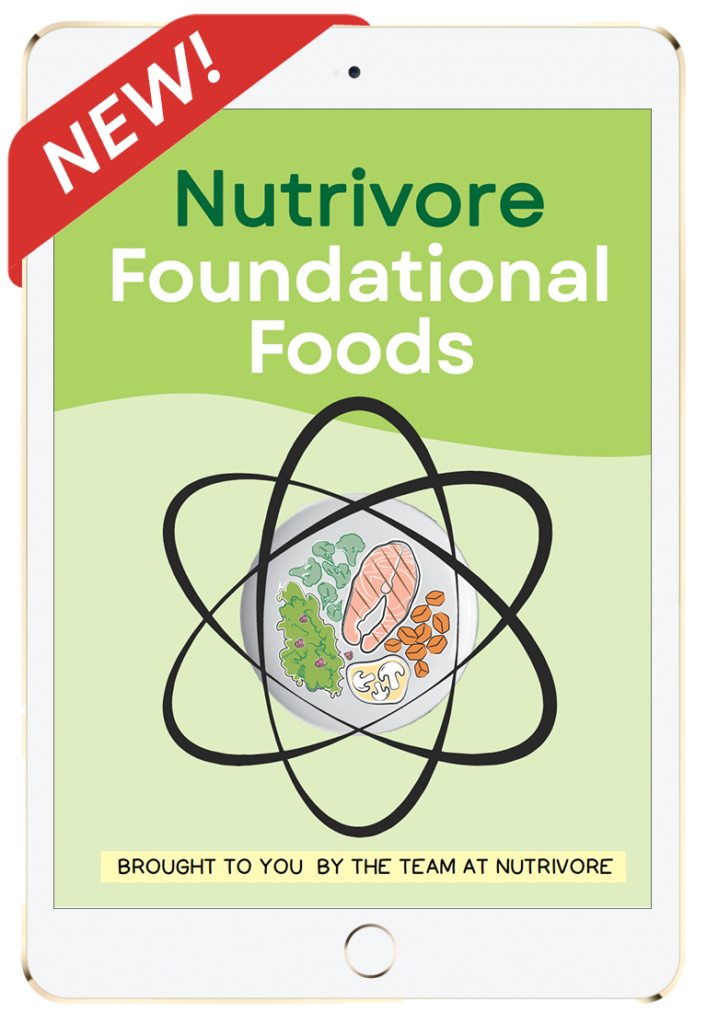
Nutrivore Foundational Foods
Learn what makes the 12 Nutrivore foundational food families nutritionally unique, their health benefits, which options are the most nutrient dense, how much of them to eat, plus various fun facts, practical pointers, and busting of common myths.
This very helpful resource will introduce you to new foods and expand your nutrition knowledge, making food choices easier!
Buy now for instant digital access.
Nutrivore Score for Adzuki Beans – 576
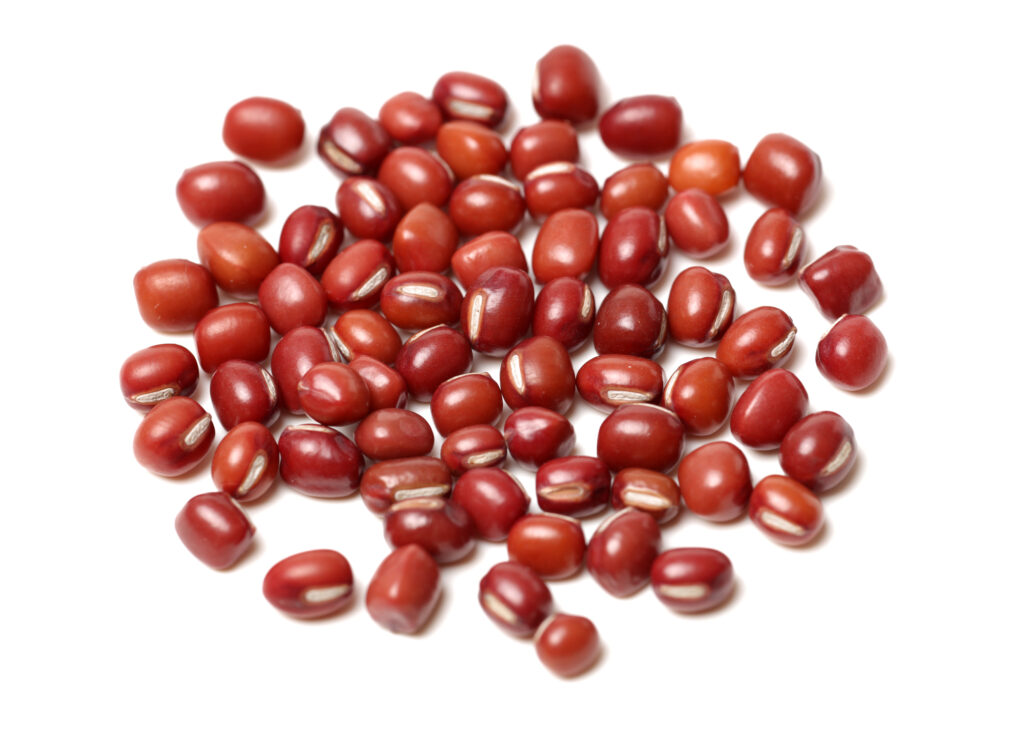
Adzuki beans have a minimum Nutrivore Score of 576, making them a high nutrient-dense food! Plus, they are a low-fat food; adzuki beans contain 0.2 grams total fat per serving!
Per serving, adzuki beans are a best source (>50% daily value) of polyphenols and vitamin B9 (folate); an excellent source (20-50% daily value) of copper, and manganese; and a good source (10-20% daily value) of dietary fiber, magnesium, phosphorus, protein, vitamin B1 (thiamin), vitamin B5 (pantothenic acid), vitamin B7 (biotin), and zinc.
Ditch Diets. Embrace Nutrients. Start with this FREE Guide.
Sign up for the free Nutrivore Newsletter, your weekly, science-backed guide to improving health through nutrient-rich foods — without dieting harder —and get the Beginner’s Guide to Nutrivore delivered straight to your inbox!

Adzuki Bean Nutrition Facts
One serving of adzuki beans is standardized to 1/6 cup raw or about 33 grams (1.2 ounces). When you cook adzuki beans, they increase in volume: 1 cup raw adzuki beans is roughly equivalent to 3 cups cooked adzuki beans.
Adzuki Bean Nutrition Facts Per Serving
| Adzuki beans, raw | Nutrivore Score: 576* | Nutrient Density: High |
|---|---|---|
| Serving Size: 1/6 cup raw or 1/2 cup cooked | Protein: 6.5 grams | Net Carbohydrates: 16.5 grams |
| Calories: 108 | Total Fat: 0.2 grams | Dietary Fiber: 4.2 grams |
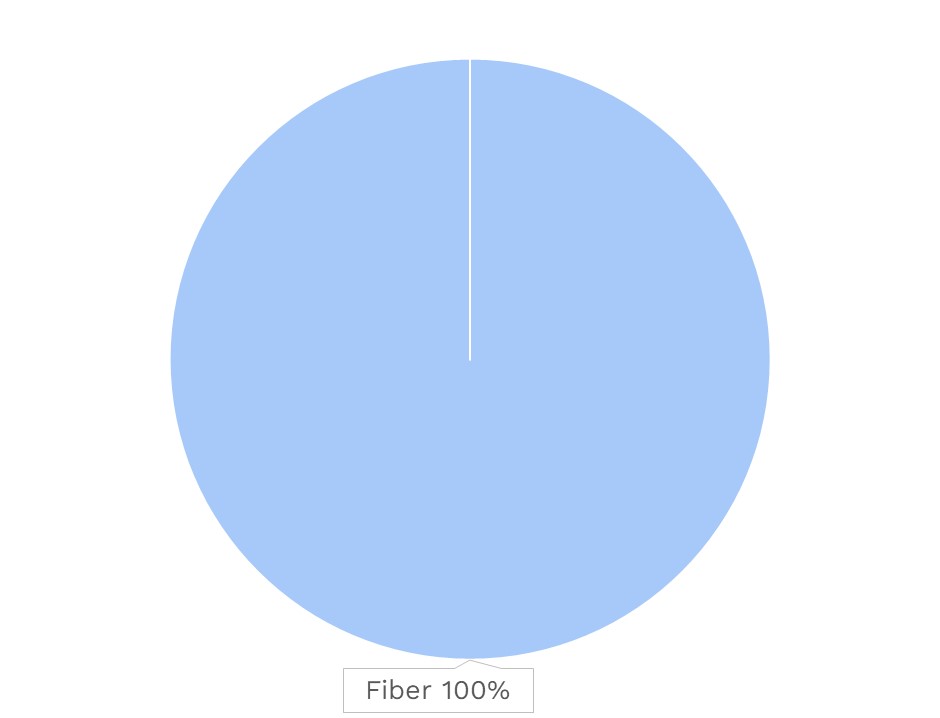
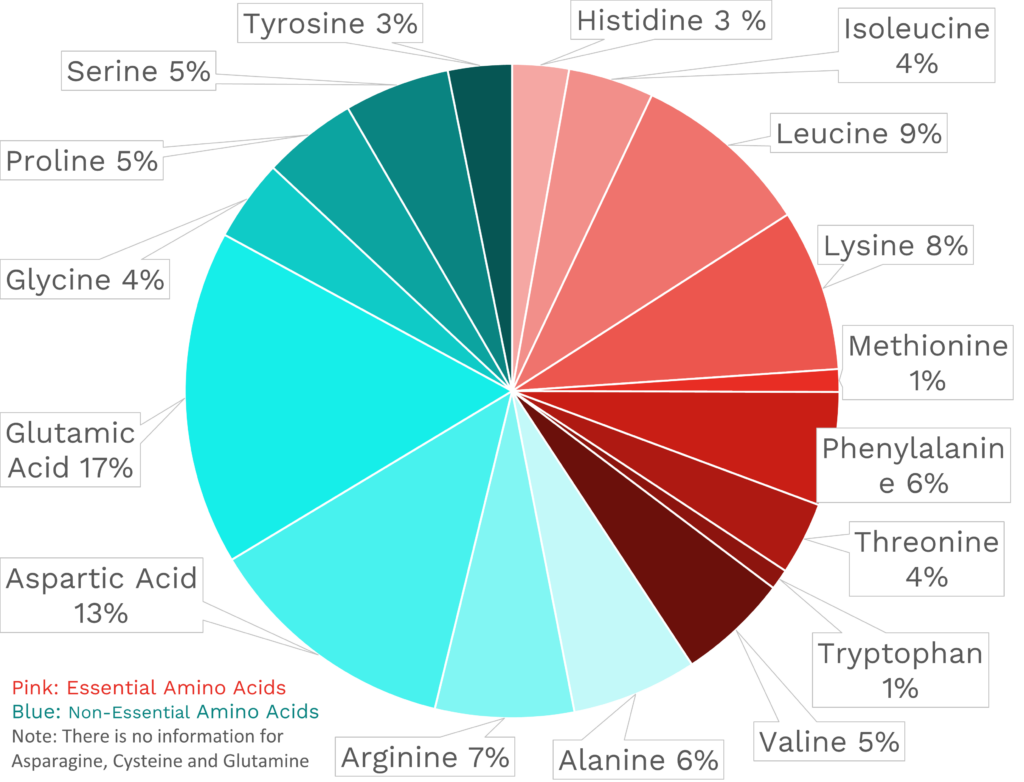
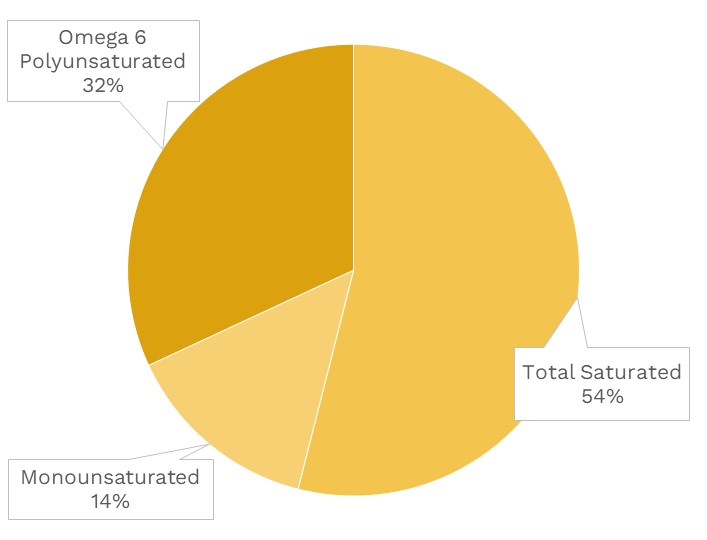
| VITAMINS | ||
|---|---|---|
| Vitamin A | 0.3 μg RAE | 0% DV |
| Vitamin B1 (Thiamin) | 149.4 μg | 12% DV |
| Vitamin B2 (Riboflavin) | 72.2 μg | 6% DV |
| Vitamin B3 (Niacin) | 0.9 mg | 5% DV |
| Vitamin B5 (Pantothenic Acid) | 0.5 mg | 10% DV |
| Vitamin B6 (Pyridoxine) | 115.2 μg | 7% DV |
| Vitamin B7 (Biotin) | 3.3 μg | 11% DV |
| Vitamin B9 (Folate) | 204.2 μg | 51% DV |
| Vitamin B12 (Cobalamin) | 0.0 μg | 0% DV |
| Vitamin C | 0.0 mg | 0% DV |
| Vitamin D (D2 + D3) | 0.0 μg | 0% DV |
| Vitamin E | ~ | ~ |
| Vitamin K | ~ | ~ |
| Choline | ~ | ~ |
| Myo-Inositol | ~ | ~ |
| CoQ10 | 0.1 mg | ~ |
| FUNCTIONAL FATS | ||
|---|---|---|
| MUFA | 0.0 g | 0% DV |
| ALA | ~ | ~ |
| EPA + DHA | ~ | ~ |
| CLA | ~ | ~ |
| Linoleic Acid | 0.0 g | 0% DV |
| MCT’s | ~ | ~ |
| MINERALS | ||
|---|---|---|
| Calcium | 21.7 mg | 2% DV |
| Copper | 359.2 μg | 40% DV |
| Iodine | ~ | ~ |
| Iron | 1.6 mg | 9% DV |
| Magnesium | 41.7 mg | 10% DV |
| Manganese | 568.0 μg | 25% DV |
| Phosphorus | 125.1 mg | 10% DV |
| Potassium | 411.7 mg | 9% DV |
| Selenium | 1.0 μg | 2% DV |
| Sodium | 1.6 mg | 0% DV |
| Zinc | 1.7 mg | 15% DV |
| PHYTONUTRIENTS | ||
|---|---|---|
| Carotenoids | 3.9 μg | ~ |
| Polyphenols | 2945.2 mg | ~ |
| Phytosterols | 25.0 mg | ~ |
| Glucosinolates | ~ | ~ |
| Thiosulfinates | ~ | ~ |
| Betalains | ~ | ~ |
| AMINO ACIDS & PEPTIDES | ||
|---|---|---|
| Taurine | ~ | ~ |
| Ergothioneine | ~ | ~ |
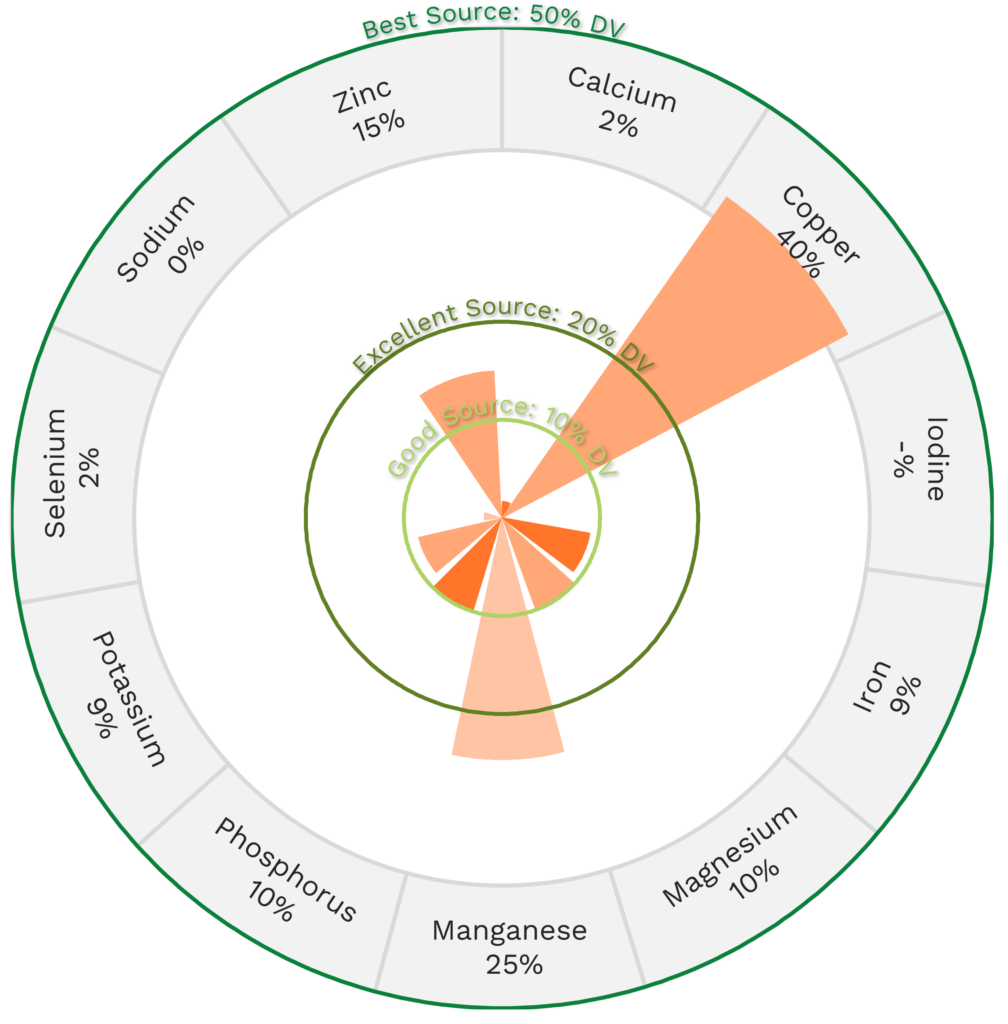
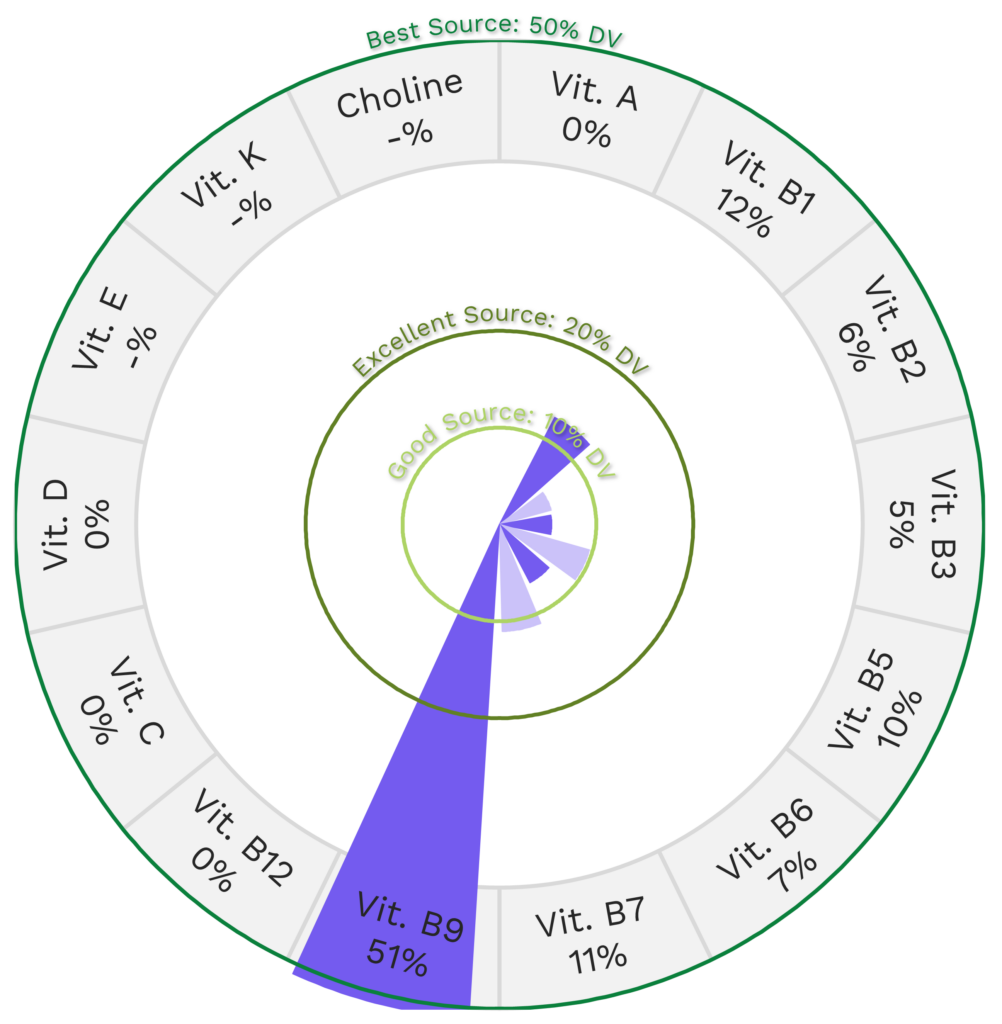
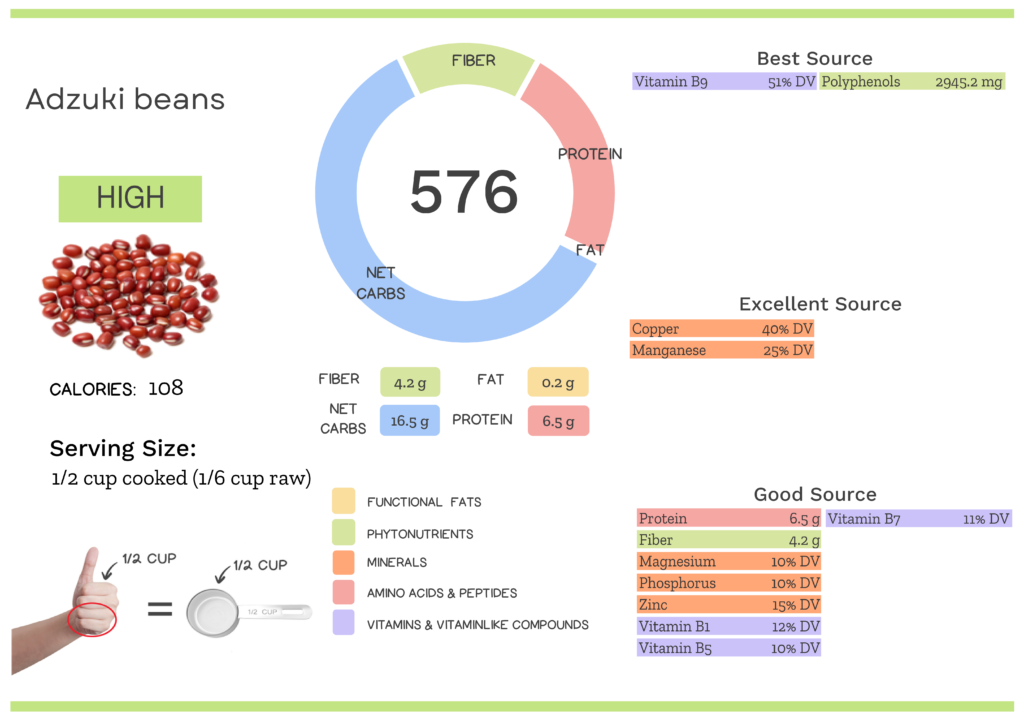
Adzuki Bean Nutrition Varies With Cooking and Processing
The Nutrivore Score of adzuki beans varies based on method of preparation and processing. Conveniently, canned adzuki beans are available at most grocery stores.
| NUTRIVORE SCORE | |
|---|---|
| Adzuki beans, mature seeds, canned, sweetened | 671 |
| Adzuki beans, mature seeds, cooked, boiled, with salt | 5352 |
| Adzuki beans, mature seeds, cooked, boiled, without salt | 5352 |
| Adzuki beans, mature seeds, raw | 5762 |
Bean Nutrition Varies With Type
There are numerous kinds of beans, ranging in color, flavor, shape, size, texture, and nutrient profile, which means their Nutrivore Scores vary as well. Choose the ones you like best but try incorporating different varieties in your diet to maximize all the nutrition that beans have to offer.
| NUTRIVORE SCORE | |
|---|---|
| Adzuki beans, mature seeds, raw | 5761 |
| Black beans, mature seeds, raw | 446 |
| Cowpeas, common (blackeyes, crowder, southern), mature seeds, raw | 238 |
| Chickpeas (Garbanzo beans), mature seeds, raw | 454 |
| Cranberry (Roman) beans, mature seeds, raw | 2651 |
| Fava beans (Broad beans), mature seeds, raw | 442 |
| Great Northern beans, mature seeds, raw | 419 |
| Kidney beans, red, mature seeds, raw | 413 |
| Lima beans, large, mature seeds, raw | 304 |
| Mung beans, mature seeds, raw | 249 |
| Navy beans, mature seeds, raw | 269 |
| Pinto beans, mature seeds, raw | 390 |
| Soybeans, mature seeds, raw | 326 |
| White beans, mature seeds, raw | 2221 |
Have you “bean” impressed with all of the nutrition in adzuki beans? Maybe your friends will be too!
Health Benefits of Adzuki Bean Nutrients
Let’s take a closer look at all of the best and excellent source of nutrients found in a 1/6-cup serving of adzuki beans and see how they benefit our health.
Adzuki Beans Provide 2945.2 mg of Polyphenols
Adzuki beans are a best source of polyphenols, providing an impressive 2945.2 mg of polyphenols per 1/6-cup serving!
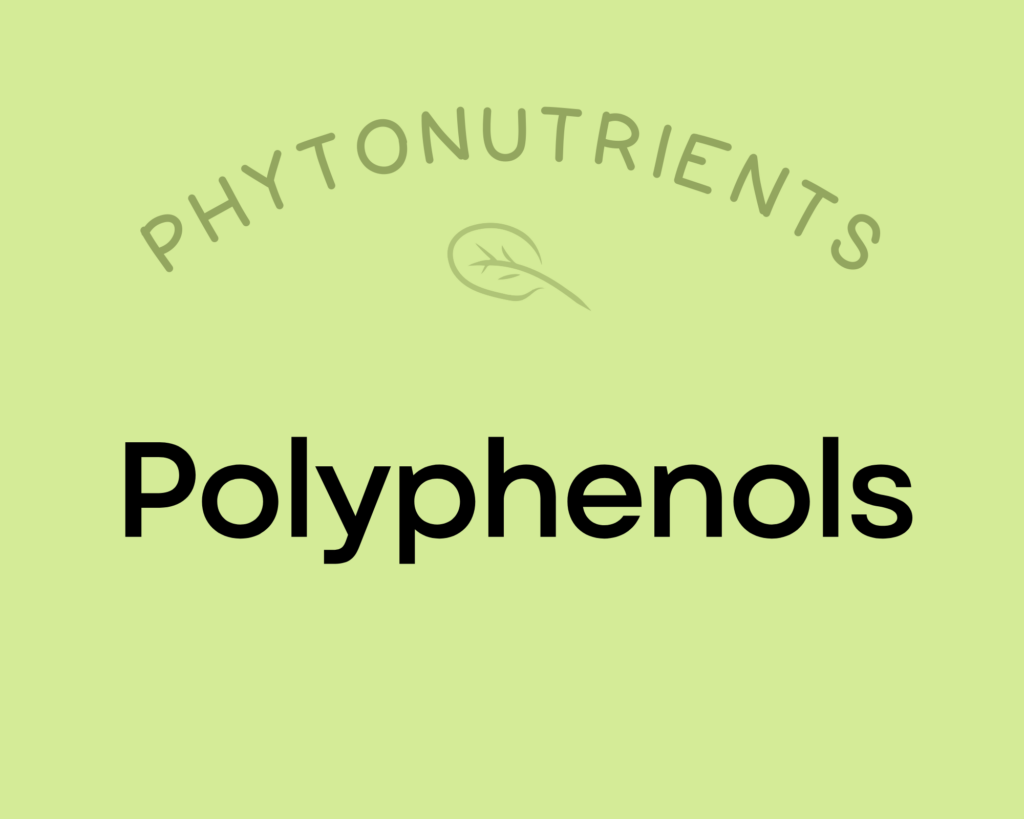
Polyphenols play a huge role in protecting against cancer, heart disease, diabetes, asthma, osteoporosis, neurodegenerative diseases, and other conditions associated with oxidative stress. In fact, a major reason foods like red wine and olive oil (as well as diets rich in both, such as the Mediterranean diet) show up as so beneficial may be due to their high polyphenol content! Along with chronic diseases, supplementing with polyphenols has been shown to protect against infections and reduce the signs of aging. Polyphenols exert their most potent effects by acting as antioxidants—preventing cellular damage by neutralizing hazardous oxygen radicals and improving cellular health as a result (which, in turn, benefits virtually every system in the body). As a result of their antioxidant properties, polyphenols also boost the immune system and protect against both chronic and acute diseases. In addition, polyphenols can help regulate enzyme function, stimulate cell receptors, modulate the functions of inflammatory cells (including T and B lymphocytes, macrophages, platelets, and natural killer cells), alter adhesion molecule expression, affect nerve cells and cardiac muscle cells, and exert antiviral effects. Learn more about polyphenols here.
Adzuki Beans Provide 51% DV Vitamin B9 (Folate)
Adzuki beans are also a best source of vitamin B9 (folate), providing 51% of the daily value per 1/6-cup serving!
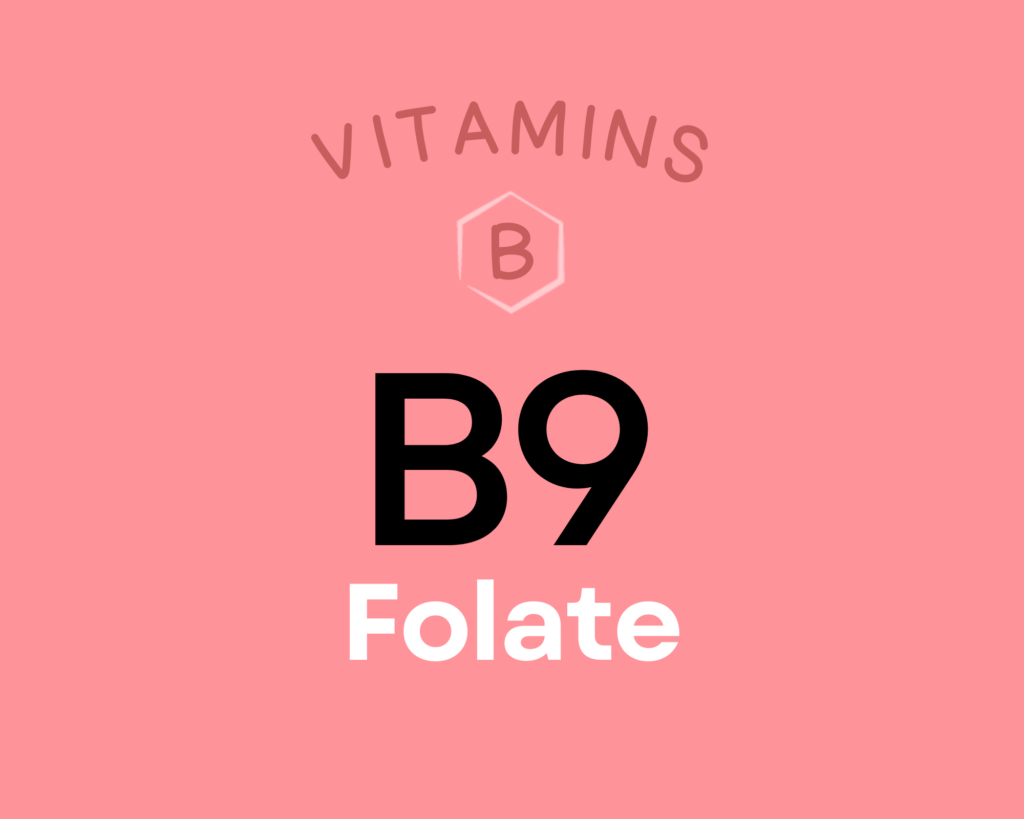
Vitamin B9 (folate) is an essential B vitamin that plays roles in blood cell production, the formation of genetic material (including DNA), and cell growth and function. It’s particularly important during pregnancy, when folate demands increase due to the rapid creation of new cells and DNA. Along with helping protect against fetal development problems, folate can support cardiovascular health, potentially protect against certain cancers, and reduce the risk of cognitive and neurological disorders later in life. Learn more about vitamin B9 here.
Adzuki Beans Provide 40% DV Copper
Adzuki beans are an excellent source of copper, providing 40% of the daily value per 1/6-cup serving!
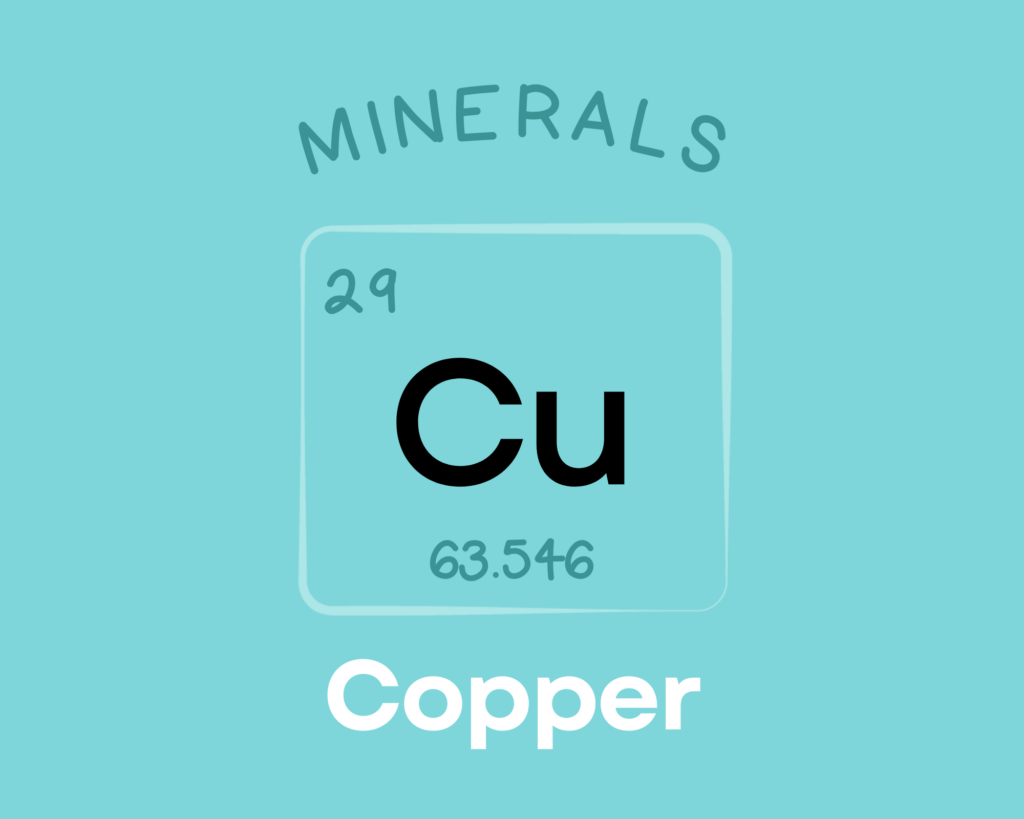
Copper is a trace mineral that’s essential for all living organisms. Copper serves as a component of numerous enzymes and proteins in the body, giving it diverse roles in the growth, development, and maintenance of various organs (including the heart and brain), bone, and connective tissue. Copper is also involved in glucose and cholesterol metabolism, helps regulate gene expression, can scavenge free radicals, and is needed for the production of red blood cells. Learn more about copper here.
Adzuki Beans Provide 25% DV Manganese
Adzuki beans are also an excellent source of manganese, providing 25% of the daily value per 1/6-cup serving!
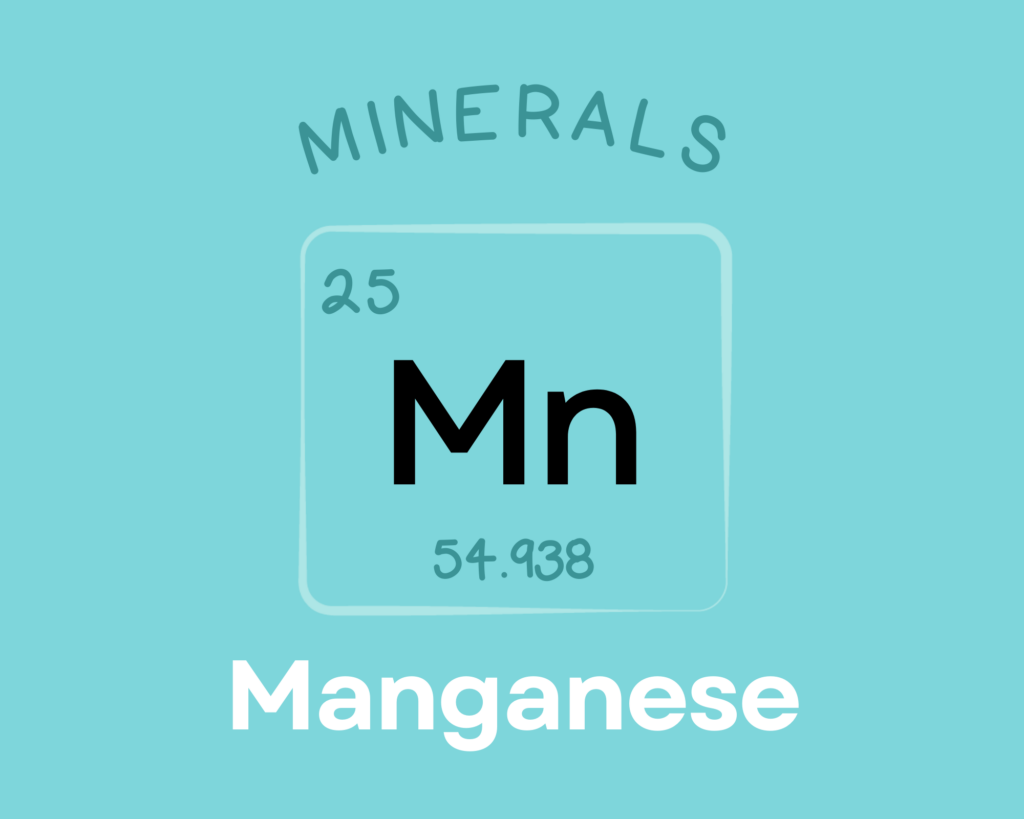
Manganese is an essential mineral that serves as a cofactor and component of numerous enzymes. Through these roles, it’s involved in carbohydrate metabolism, amino acid synthesis, gluconeogenesis, detoxification, lipid processing, free radical defense, bone and collagen formation, and wound healing. Although the research so far is limited, some evidence suggests that manganese can protect against osteoporosis and diabetes, and may even be involved in seizure disorders. Learn more about manganese here.
Learn What Foods Are the Best Sources of Every Nutrient
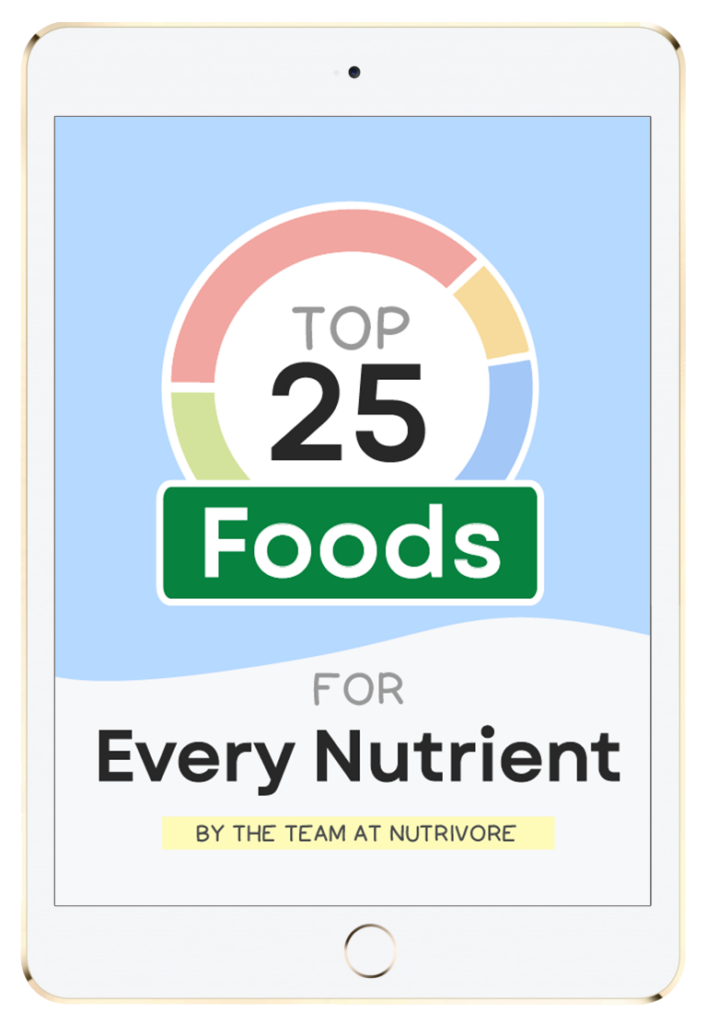
The Top 25 Foods for Every Nutrient
The Top 25 Foods for Every Nutrient e-book is a well-organized, easy-to-use, grocery store-friendly guide to help you choose foods that fit your needs of 43 important nutrients while creating a balanced nutrient-dense diet.
Get two “Top 25” food lists for each nutrient, plus you’ll find RDA charts for everyone, informative visuals, fun facts, serving sizes and the 58 foods that are Nutrient Super Stars!
Buy now for instant digital access.
How Much Adzuki Beans Should We Eat Per Day?
On average, legumes are the most nutrient-dense starchy plant foods we can choose to eat, thanks to their high fiber content and phytonutrients, all of which result in diverse health benefits!
In epidemiological studies, consumption of legumes is frequently associated with better health and greater longevity. This is attributable to their amazing nutrient-density (especially fiber, vitamins and minerals) and the fact that they’re particularly great for increasing growth of probiotic bacteria in our guts. Across studies, beans have demonstrated a great number of health benefits, likely due to their combination of fiber and phytonutrients. A high consumption of beans is associated with reduced waist size, lower risk of obesity, and lower systolic blood pressure.
A large 2017 meta-analysis showed that all-cause mortality (a general indicator of health and longevity) decreased by 16% with increasing intake of legumes up to 150 grams (3 servings) per day. And, in a 2021 study, eating 3+ servings of legumes per week reduces all-cause mortality by 17% compared to 2 servings per month. Learn more about legumes here.
Easily track your servings of Nutrivore Foundational Foods!
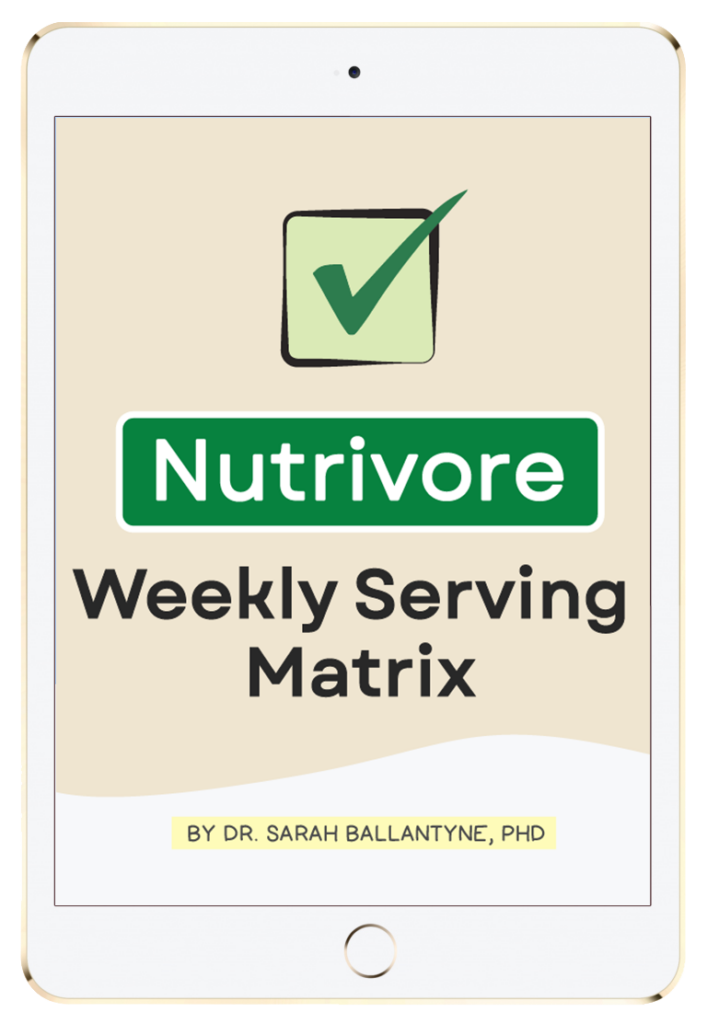
The Nutrivore Weekly Serving Matrix
The Nutrivore Weekly Serving Matrix digital resource is an easy-to-use and flexible weekly checklist designed to help you maximize nutrient-density and meet serving suggestions of Nutrivore foundational foods, all without having to weigh or measure your foods!
Includes a 22-page instructional guide and downloadable interactive guides.
Buy now for instant digital access.
cITATIONS
Expand to see all scientific references for this article.
Kubo H, Fujii K, Kawabe T, Matsumoto S, Kishida H, Hosoe K. Food content of ubiquinol-10 and ubiquinone-10 in the Japanese diet. Journal of Food Composition and Analysis. 2008. Vol 21(3):199-210. https://doi.org/10.1016/j.jfca.2007.10.003.
Fineli Finnish Food Composition Database: Bean, Adzuki Bean, Dried
Phenol-Explorer: Adzuki bean, whole, raw
USDA Food Central Database: Beans, adzuki, mature seeds, raw
Watanabe T, Kioka M, Fukushima A, Morimoto M, Sawamura H. Biotin content table of select foods and biotin intake in Japanese. Int J Anal Bio-Sci. 2014. Vol 2(4):109-125.


